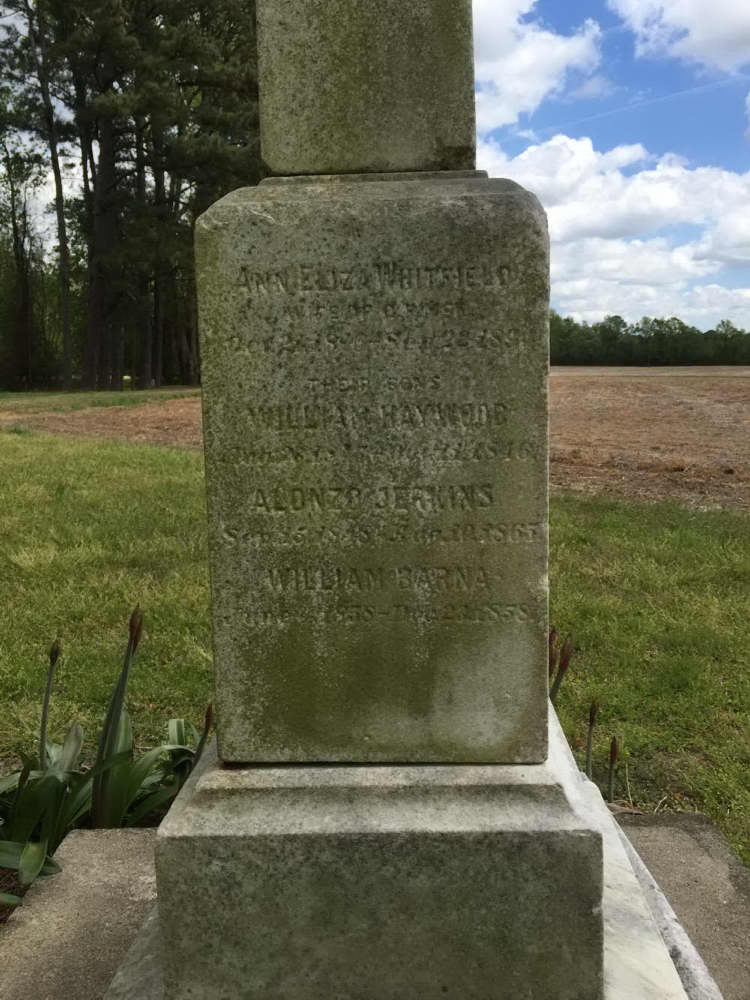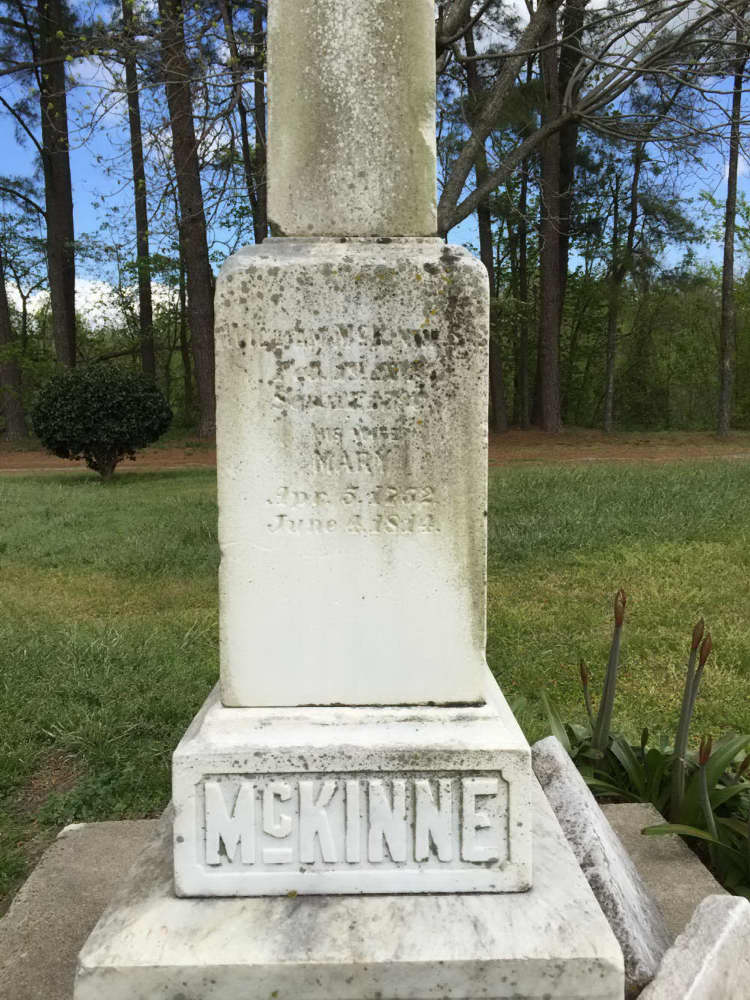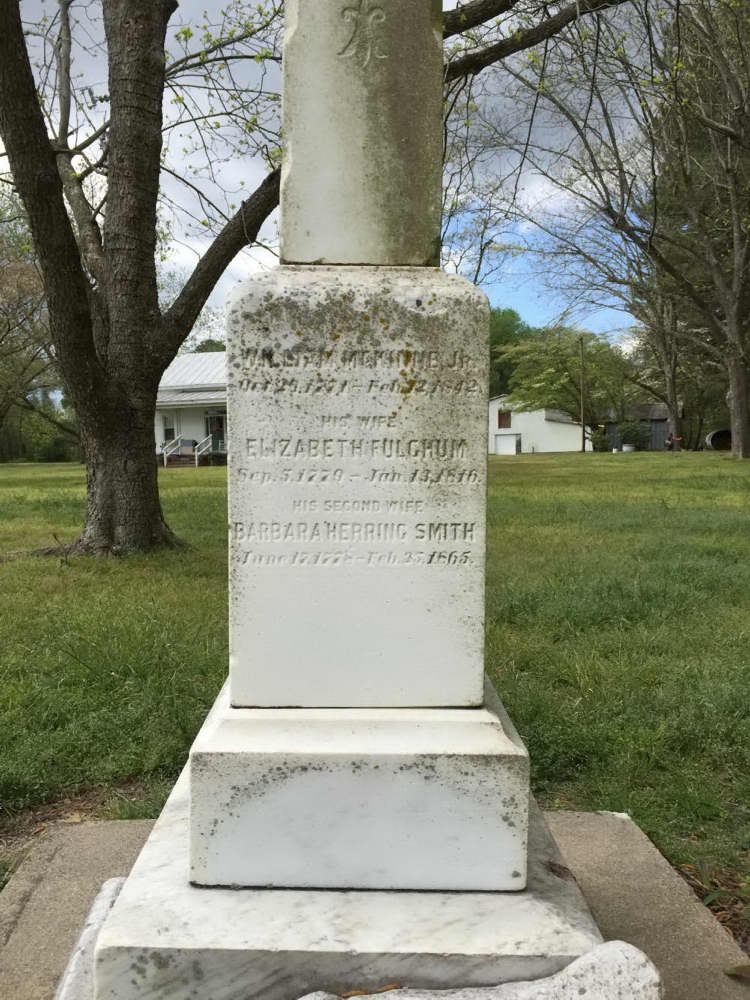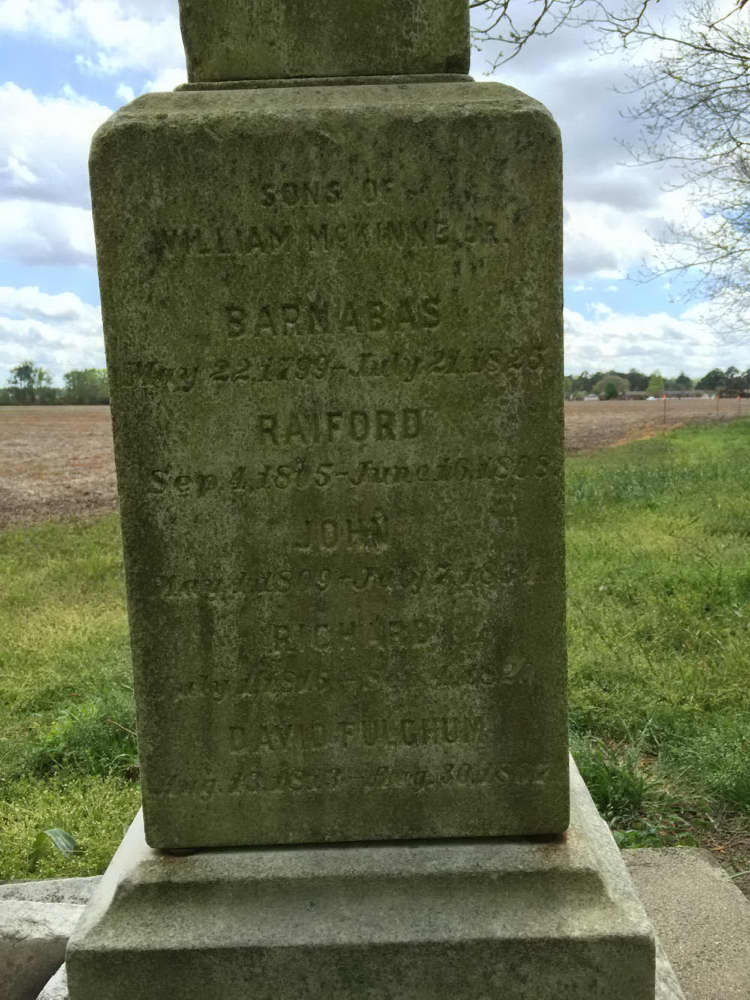|
Wayne County, NC
Wayne County's shape and size and political persuasion of its people have evolved primarily from one man of Scottish descent, William McKinne, Sr. McKinne and his sons who followed him were giants among men.
He was a true revolutionary, serving as a member of the North Carolina Assembly, during which he voted for and signed the Halifax Resolves, and also as a Minute Man, fighting for American freedom.
McKinne was born in Bertie County, NC (now Edgecombe) about 1728. He first settled on 300 acres in 1749 in what was then Johnston County but is now Wayne County.
His first land was located on South Roundabout Creek south of the Neuse River. He later acquired sizeable tracts on Walnut Creek and Bogue Marsh in Dobbs County, which are now in Wayne. Some of the property has been traced to the present.
Construction of what is known as the Marshall Cox house, located south of the Neuse, west of the Bentonville Road and near the Johnston County line, was started by a McKinne, probably Richard, William's son.
According to a document still extant, the property was deeded in 1805 by Barnabas McKinne, administrator of the estate of William McKinne, Sr., to Joseph Everett. Everett was married to Barnabas' niece, Anny McKinne.
The house passed from Everette to his daughter, Anny, who married William B. Smith. Then from Smith to Julius Cox, who married his daughter, Fanny Smith.
From Julius Cox, it passed to Richard Cox, his brother. Richard in turn sold it to another brother, Marshall, father of the present owners and occupiers of the house, Haywood Cox and his sister, Miss Sue Cox.
William McKinne, Sr. was an early conservationist. While in the Assembly, he presented bills to prevent the burning of woods and to limit the killing of deer.
Another of his bills let to the establishment of Raleigh as the state capitol. It called for "erecting part of Johnston, Cumberland and Orange counties into a separate and distinct county by the new name of Wake and St. Margaret's Parrish."
Simultaneously while serving in the Assembly, he was "High Sheriff" of Dobbs County, now Wayne.
He served in the militia from 1771 to 1789 when he resigned as a colonel. While a Minute Man captain, he was involved in the march on the Regulators in the western part of the colony.
McKinne, while in the Assembly, in 1776, helped fashion the Halifax Resolves, the first official expression by any colony of independence from the crown. The Resolves were presented to the Continental Congress in Philadelphia.
In 1779, McKinne was again in the Assembly and was appointed to a commission charged with dividing Dobbs County. It was then that Wayne County was formed.
McKinne was given the contract for building the first courthouse at Wayne County's first seat of government, Waynesborough, which was incorporated in 1787. He was among the directors and trustees of the town.
Shortly after ending nearly 40 years of public life, William McKinne, Sr. was dead. It is not known where he is buried.
Three of Col. McKinne's sons had very distinguished careers. They were William, Jr., a founder of Waynesborough and militia colonel; Barnabas, member of the Assembly and militia colonel; and Richard, a county and state official and militia general.
A tombstone on William McKinne, Jr.'s old plantation, now the "Old Kentucky Farm" off the Old Grantham Road owned by Bill Smith, marks the graves of William McKinne, Jr., (he is designated William McKinne, Sr., because he had a son named William McKinne, Jr.), his wife, sons, daughters-in-law and grandsons.
On each side of the tombstone are the names of McKinne's kin.
One side reads, "William McKinne, Sr., Feb. 19, 1749-Sep. 17, 1796; His wife, Mary, Apr. 5, 1752-June 4, 1814."
Another side reads, "Ann Eliza Whitfield, wife of D.M. McK., Oct. 21, 1816-Sep. 22, 1894; Their sons, William Haywood, Aug. 23, 1845-Oct. 11, 1864; Alonzo Jerkins, Sep. 15, 1858-Dec. 23, 1858." Jerkins is believed to be a
misspelling of the name, Jernigan.
A third side of the stone states, "William McKinne, Jr., Oct. 29, 1771-Feb. 12, 1842; His wife, Elizabeth Fulghum, Sep. 5, 1779-Jan. 13, 1816; His second wife, Barbara Herring Smith, June 17, 1778-Feb. 25, 1865."
Mrs. Graham Hood, now living in Goldsboro, traces her ancestry to Elizabeth Fulghum, who was her great-great grandmother. The daughter of Elizabeth Fulghum and William McKinne, Jr., Annie Elizabeth Whitfield, married David Fulghum McKinne; their daughter, Annie Elizabeth Barbara McKinne, married W.R. Hollowell; and their daughter, Minnie Deems Hollowell, married David M. Prince, the parents of Mrs. Hood.
The fourth side of the tombstone is etched, "Sons of William McKinne, Jr.: Barnabas, May 22, 1799-July 21, 1825; Raiford, Sep. 4, 1805-June 16, 1808; John, May 1, 1809-July 18, 1834; Richard, July 1, 1815-Sep. 4, 1820; David Fulghum, Aug. 13, 1813-Aug. 30, 1867."
Barnabas McKinne lived on a plantation willed to him by his father "on the Savannah between Walnut Creek and Mrs. Green's." It joined the land where the old Dobbs Courthouse stood and contained a mill and a pond. He is believed to be buried in a private burying ground near the old Dobbs Courthouse with his daughter, Elizabeth, and her husband, Gen. Nicholson Washington.
Richard McKinne served as a justice in the county court, a county commissioner and a justice of the peace. He was one of the justices attending the first court held at Waynesborough. Richard was a member of the State House of Commons and State Senate. He voted for the federal Constitution as North Carolina became the 12th state to join the Union.
An early Wayne County map marks the lands of Gen. Richard McKinne and the Whitfields. Richard and his wife, Sarah Fellows, had eight children.
From the McKinnes came the names of many who have made contributions to Wayne County. They include Fellows, Coor, Everett, Smith, Sasser, Whitfield, Kennedy, Borden, Jernigan, Blackman, Wooten, Pope and Washington.
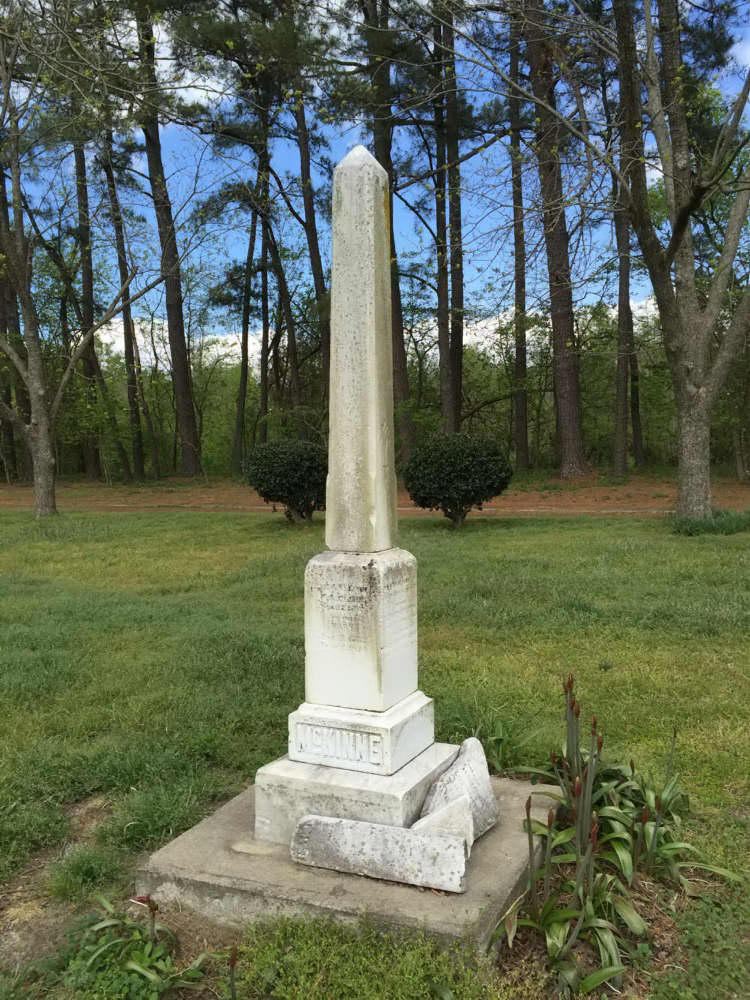
|
